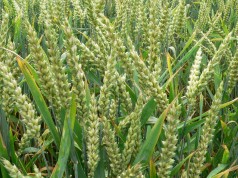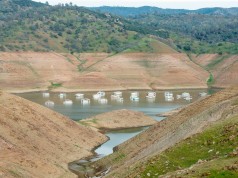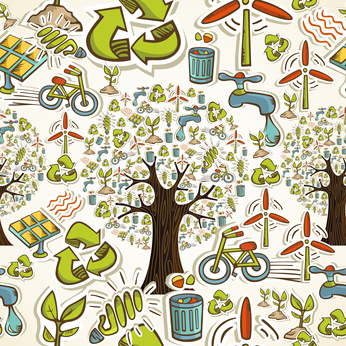Nairobi – Mongolia, which is prioritizing a Green Economy shift across its big economic sectors such as mining and promoting environmental awareness among youth, is to host this year’s World Environment Day (WED) celebrations on June 5, the UN Environment Programme (UNEP) announced on February 22.
The 2013 theme for the event, the single biggest day for positive action on the environment worldwide, is “Think. Eat. Save. Reduce Your Foodprint” – building on the global campaign of the same name to reduce food waste and loss launched earlier this year by UNEP, the Food and Agriculture Organization (FAO) and partners.

UNEP made the announcement during the close of its first Governing Council session under universal membership, where hundreds of environment ministers, senior UN officials, and civil society representatives met to discuss some of the most-pressing environmental issues of the day, including food waste as part of the transition to a low-carbon, resource-efficient future.
Mongolia’s President Tsakhia Elbegdorj was named as one of six recipients of UNEP’s Champions of the Earth 2012 award for leadership that had a positive impact on the environment.
“Mongolia is facing enormous challenges including growing pressure on food security, traditional nomadic herding and water supplies as a result of the impacts of climate change,” said UN Under-Secretary-General and UNEP Executive Director Achim Steiner. “Indeed it is estimated that annual mean temperature has increased by over 2°C during the last 70 years and precipitation has decreased in most regions, except the western part of the country, indicating that Mongolia is among the most vulnerable nations in the world to global warming.”
“Yet its government is also determined to meet these challenges and seize the opportunities of a less-polluting and more-sustainable future – from a moratorium on new mining pending improved environmental regulations to plans to become a renewable energy power-house and exporter of clean energy regionally,” added Mr. Steiner. “I am sure that as the global host of WED, Mongolia will demonstrate to the world that a transition to a Green Economy is possible, even within some of the most traditionally challenging industrial sectors, when leadership, vision, smart policies and political will are translated into action on the ground.”
Mr. Steiner also announced that a UNEP mission to Mongolia was scheduled to depart in April to assist the country with Green Economy Advisory Services across areas such as energy, land and water.
Mongolia’s transition is already underway. It has passed a law on decreasing the air pollution that was triggered by a growing population and coal usage in the capital Ulaanbaatar. It is planning to establish a satellite-city near the capital for the purposes of limiting coal-burning in the capital, transferring energy-saving technology, and imposing air pollution tax in some regions of Ulaanbaatar.
Since 2010, Mongolia has suspended the issuance of all new mining licenses until fresh regulations are drawn up, citing the protection of the mineral-rich Asian country’s environment and herdsmen’s livelihoods as well as promotion of green development with consideration of water shortage and land degradation.
Projects that enhance youth understanding of environmental protection have been set up, and national tree planting days to combat desertification and water scarcity have seen over two million trees planted across Mongolia’s vast desert regions since 2011. Mongolia also has huge solar power potential, particularly in the sparsely populated Gobi region, and is looking for ways to exploit this.
“Our government has shown its commitment to positive environmental actions, not just with words but with concrete action,” said Mr. Tulga Buya, Vice Minister of Environment and Green Development, “so we seized the opportunity to host World Environment Day with both hands.”
“We hope our leadership in terms of what we have done at home and hosting this important yearly event will show the world that change is possible,” he added.
About World Environment Day
World Environment Day (WED) aims to be the biggest and most widely celebrated global day for positive environmental action. WED activities take place year round but climax on June 5. WED celebrations began in 1972 and have grown to become the one of the main vehicles through which the UN stimulates worldwide awareness of the environment and encourages political attention and action. Through WED, the UN Environment Programme is able to personalize environmental issues and enable everyone to realize not only their responsibility, but also their power to become agents for change in support of sustainable and equitable development. For more information, visit www.unep.org/wed/.
Think.Eat.Save. Reduce Your Foodprint
The campaign harnesses the expertise of organizations such as WRAP (Waste and Resources Action Programme), Feeding the 5,000 and other partners, including national governments, who have considerable experience targeting and changing wasteful practices. It aims to accelerate action and provide a global vision and information-sharing portal for the many and diverse initiatives currently underway around the world. For more information, visit www.thinkeatsave.org.
Source: UNEP.















